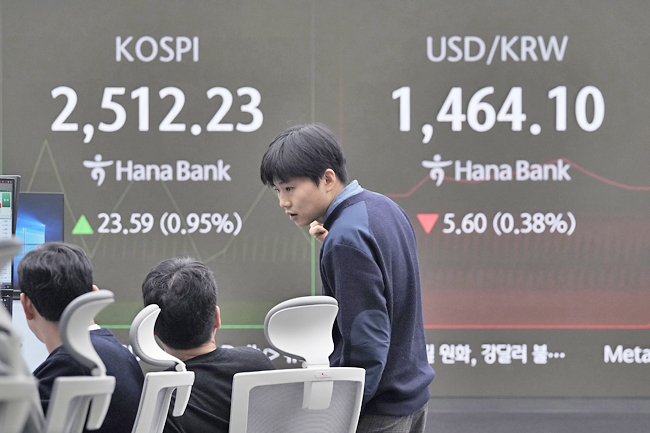AFP – Most markets rose in Asia yesterday following another rally on Wall Street sparked by tech giants as traders try to assess Donald Trump’s tariff plans following a report he may take a more targeted approach.
Eyes were also on the release of closely watched United States (US) jobs data at the end of the week after the Federal Reserve (Fed) scaled back its interest rate cut expectations and took a more hawkish turn.
After a tepid start to the week, Asian investors fought to recover yesterday after a tech-fuelled rally in the S&P and Nasdaq – with Nvidia hitting a record – as strong results from chip giant Foxconn sparked a fresh rush for semiconductors.
The US gains were also helped after The Washington Post said Trump’s aides were weighing plans to apply tariffs only to goods in certain critical sectors – a more narrow definition than the president-elect previously proposed.
Most markets rose in early Asian business, with Tokyo up two per cent helped by a weak yen, while Shanghai, Sydney, Singapore, Seoul, Taipei, Mumbai, Bangkok and Jakarta were also higher. Wellington and Manila fell.
Hong Kong also retreated as tech firms took a hit with Tencent diving more than seven per cent. Its US-listed shares shed 7.8 per cent.

Still, Morningstar senior equity analyst Ivan Su said, “Given Tencent’s business model – which primarily revolves around social networking and online gaming – we believe the company has a good chance to secure exclusion through US courts.”
Major battery manufacturer CATL, which was also named on the list, sank 5.2 per cent in Shenzhen before paring the losses.
The announcement came just weeks before Trump returns to the White House, with many commentators fearing another trade war.
There is also growing concern that his plans to slash taxes, remove regulations, impose tariffs on imports and crack down on immigration will reignite inflation, putting pressure on the Fed to keep borrowing costs higher for longer.
“While an aggressive Trump may try to deliver large fiscal stimulus, stronger demand would quickly run into a deteriorating supply side of the US economy,” said senior emerging markets economist at Schroders David Rees.
“Despite being partially absorbed by the stronger US dollar and profit margins, substantially higher tariffs would be likely to increase goods inflation.
“But the greater threat to inflation probably comes from a crackdown on immigration, along with mass deportations, if it leads to labour shortages that would ultimately result in higher wages and services inflation.”
Friday’s non-farm payroll report is the next big marker for investors hoping for some idea about the Fed’s plans for rates after it scaled back its forecasts for cuts in 2025 last month.






